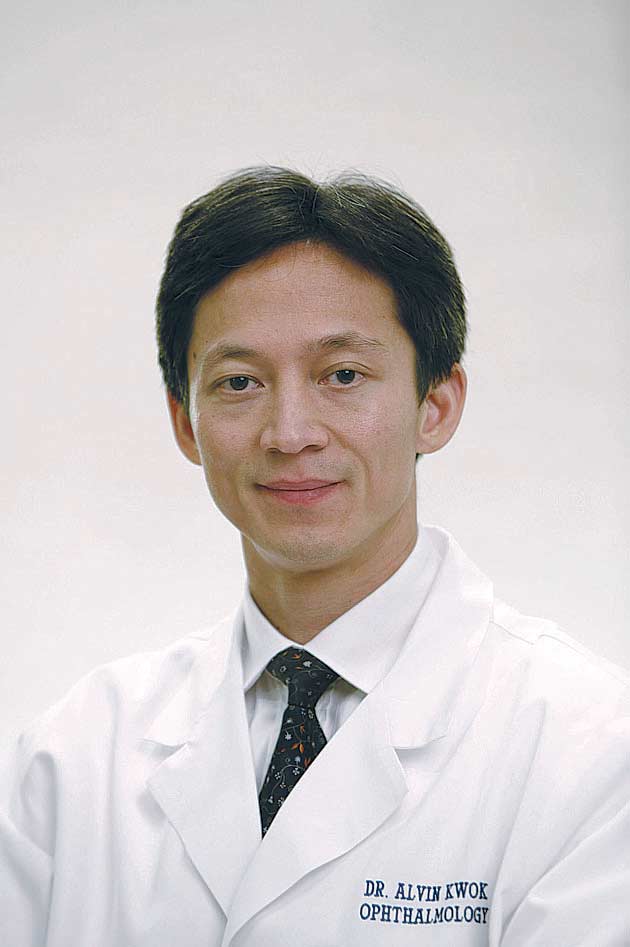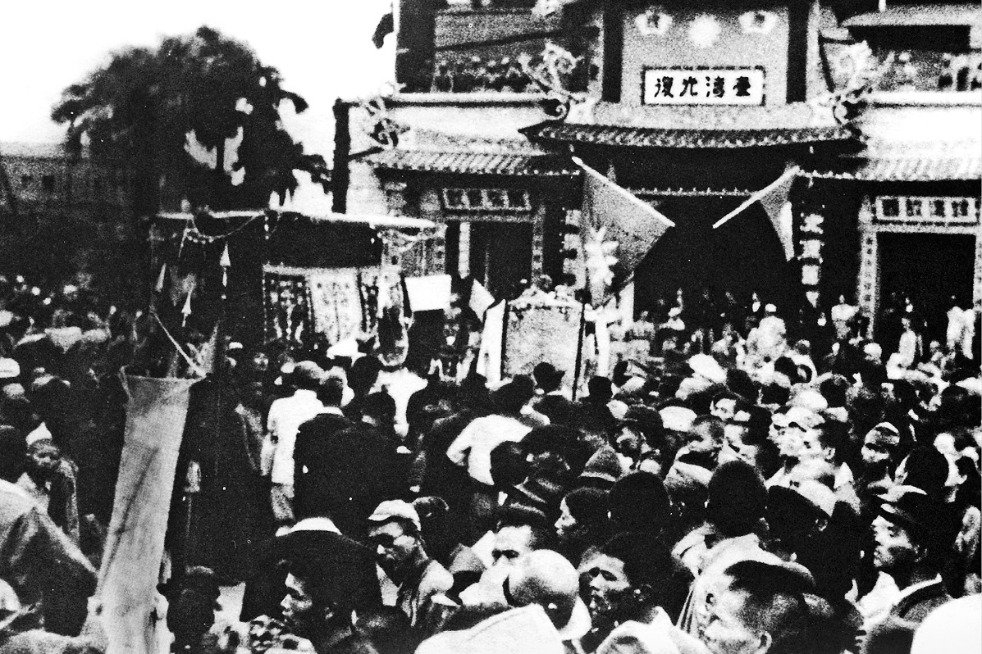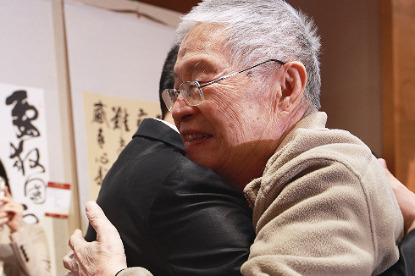Ophthalmologist finds greatest fulfillment training peers


Ophthalmologist Alvin Kwok Kwan-ho has saved the sight of thousands. So it is perhaps surprising when the unassuming doctor says his most rewarding work — more than the many surgeries he has performed — has been the translation of journals.
Kwok, a consultant ophthalmologist at the private Hong Kong Sanatorium & Hospital, said he was the first to help translate the peer-reviewed monthly British Journal of Ophthalmology and the official journal of the American Academy of Ophthalmology into simplified Chinese — back in 2004 and 2011, respectively. This has helped numerous ophthalmologists in the Chinese mainland keep abreast of the latest medical trends and techniques, and in turn has benefited patients around the country.
Subscribing to an international journal can cost several thousand Hong Kong dollars per year, which is expensive for some doctors in the Chinese mainland. "But that is not the major issue," said Kwok. Instead, he said that the frequent use of intricate medical terms in foreign-language journals can be a barrier for doctors in the Chinese mainland to understand new research findings.
In discussion with the two journals, he persuaded them to create Chinese versions of their official websites, to put his translations online. "But it would be too much work to translate the whole journal (myself), so I started little by little," said Kwok, who would prepare the translations of the abstracts of all major articles in the two journals for Chinese mainland doctors to read easily without paying a cent.
Kwok stopped translating for the two journals a few years ago, but his mission has been passed on to other translators and editors, letting eye doctors in China see and be seen by the international community of ophthalmologists.
"I find it very meaningful, because I always want to contribute something to help the patients and doctors in the Chinese mainland," he said.
Kwok has observed significant medical advances in the mainland in the past 20 years, but he said challenges remain in the ratio of doctors to patients and their unbalanced distribution.
"The seniors don't have much time to teach the juniors, while the junior ones already have lots of patients to see by themselves," he said, adding that a rigid and more structured training system will be needed to narrow the gap.
By 2030, China plans to have five general practitioners for every 10,000 residents, which means the country will have to increase the number of general practitioners from the current 209,000 to more than 700,000, according to the National Health Commission, the country's top health authority.
Strengthening efforts to build up the ranks of general practitioners is among the key points in the Healthy China strategy, which was addressed in the Government Work Report delivered in March at the annual meeting of the National People's Congress, China's top legislature.
"I know the Chinese mainland is trying to restructure its curriculum and training, not just in ophthalmology but in every specialty," said Kwok. "If Hong Kong can help, we will be more than happy to share (our experience) with them, because Hong Kong has also passed through that stage, building everything from scratch."
Kwok, since the very start of his career, has been contributing to this through his own efforts.
Several times he went on the Lifeline Express, a mobile hospital set up on a train, with charitable organization the Lifeline Express Hong Kong Foundation. The project reached into remote areas of the mainland, providing free cataract surgeries for patients in need. China accounts for about 18 percent of the world's blind, while cataracts are one of the major causes, according to the World Health Organization.
Besides nurturing the next generation of ophthalmologists in Hong Kong, Kwok devotes time to different hospitals in the mainland, giving lectures and performing surgery demonstrations for his peers there.
"Every time I have tried not to bring my own instruments. I try to use their instruments, because I want to show them that even with their own instruments, the doctors there can still achieve what I can achieve," said Kwok.
Being a prominent ophthalmologist, researcher and professor, Kwok is famous for his exquisite precision in treating retinal and macular diseases. His day-to-day work in Hong Kong is with patients, sometimes from around the region, who come looking for a solution that other doctors could not provide.
"Most doctors in Hong Kong can do cataract surgery, because that is the usual training practice," he said. "But for retina or macular surgery, a lot of eye doctors don't do it because it is much more subspecialized and requires a lot of training."
The macula, which is at the center of the retina, is responsible for central and color vision. If left undiagnosed or untreated, maculopathy can lead to severe consequences like blurred central vision and distorted images, and finally loss of useful vision.
Kwok recalled that when he first joined the ophthalmology department around 1990, the field's development in Hong Kong was lagging behind the West. "There were only a few doctors who could do retina or macular surgeries and the success rate was not very good," he said. "You could diagnose a lot of macular diseases, but you could not treat it (because of the technology)."
He explained that he felt the need to focus on retinal and macular diseases and make people aware of the importance of ophthalmology. He holds three postgraduate doctorates, all in the field of retinal and macular diseases, and is the founding fellow of the College of Ophthalmologists of Hong Kong.
About 20 years ago, he did the world's first randomized controlled study for macular hole surgery.
As he went to various international meetings, Kwok had noticed there was a new technique generating discussion among ophthalmologists — but there were safety concerns and nobody was sure whether the technique was feasible.
In order to stimulate the macular hole to close, the method requires the removal of the internal limiting membrane over the macula, an extremely thin and transparent membrane on the surface of the retina. "But if you do it, it will be very helpful," said Kwok, who decided to test and prove the new technique.
The result of his randomized controlled study was encouraging as 90 percent of the patients who had their ILM removed recovered with the closure of the macular hole. The study led to widespread use of this technique in macular hole surgery, and now an over 90 percent success rate has become the common standard.
kelly@chinadailyapac.com
- China revitalizes 88 key rivers, lakes in ecological restoration drive
- La Nina weather pattern could bring extreme cold, droughts, says NCC
- A march of faith: 74-year-old Hong Kong man retraces the Long March on foot
- Tianjin hosts events highlighting status as international destination
- Chinese startup Interphase takes top prize at Kering Generation Award
- With eyes toward shared development, Mayor's forum kicks off in Zhengzhou





































